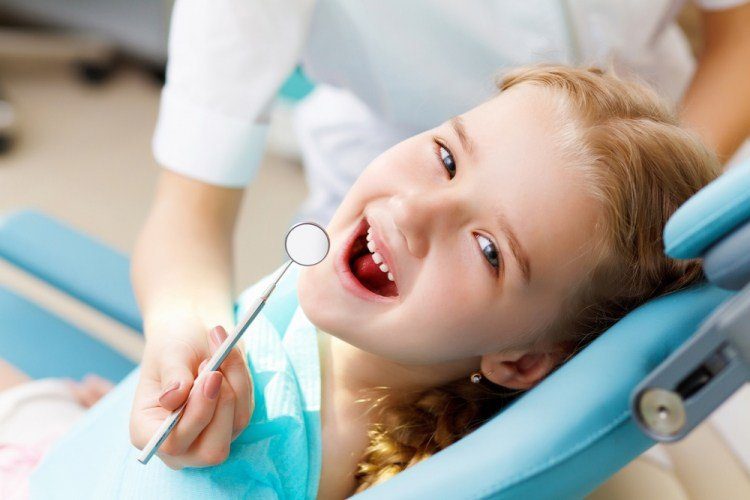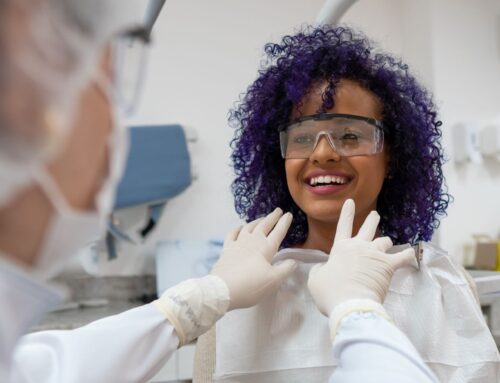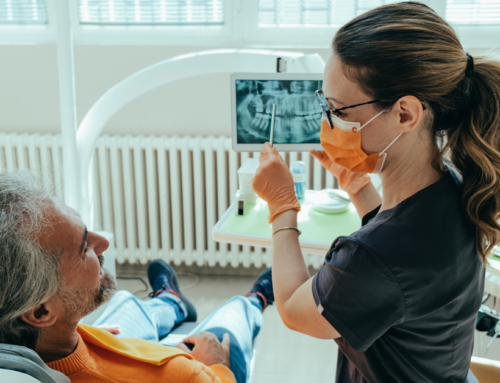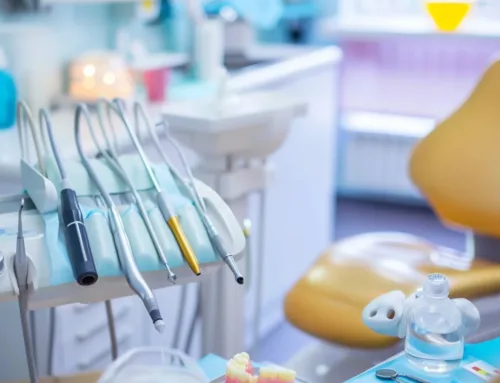What Parents Should Expect When Taking Kids to a Pediatric Dentist
When you become a parent, your whole world changes and priorities shift to making sure that your children grow up happy, strong, and healthy. This of course includes their dental care, and getting children started properly down the road to a healthy mouth is very important. That’s why we’ve put together this helpful guide for parents to explain the essentials of pediatric dentistry.
In this article, you’ll learn about the early stages of development of your child’s teeth, as well as the kinds of healthy habits you should teach and encourage to ensure they learn the basics of oral care. We will outline what to expect from your first visit to a pediatric dentist, and some fun ways to help keep the mood light and your children relaxed. Finally, we will inform you on a few key things to watch as your children’s teeth continue to grow and develop, including a few warning signs of potential problems.
Heading to the dentist for your child’s first checkup can be a very fun experience, and modern pediatric dentistry is all about making sure your children are comfortable, at ease, and happy with the care they are receiving. You can take steps at home to make things even easier by starting with some simple habits before you have your first appointment. Let’s have a look at some of these easy things you can do to teach your children the basics of good dental health.
Early Oral Care for Children
Even before your children have cut their first teeth as babies, it’s wise to get in to the habit of cleaning their gums regularly to help remove bacteria, sugar, and other food particles from the mouth. Parents can do this with a soft, clean washcloth and some warm water, massaging the gums gently with their finger. This gets your child accustomed to a feeling on their gums that is similar to what brushing will feel like.
Once your baby has cut their first teeth, you can progress from the washcloth to a soft infant toothbrush and some mild training toothpaste but avoid choosing a toothpaste that contains fluoride until the child is at least 2 years old. Using a similar motion to how you used the washcloth on their gums, brush their teeth gently with a very small amount of toothpaste. This should be done after each main meal throughout the day.
While doing this, it’s a good opportunity to check your child’s mouth for any new teeth that may be emerging. Look for any irritation or sore spots that may be present and avoid them with the brush as the discomfort of the pressure could upset your child. Monitor any abnormalities you see and ask your dentist or doctor for advice if they persist.
Stages of Tooth Development
As your child grows from infant to toddler, their mouth will undergo many changes. The first teeth to emerge will be the front incisors, usually on the bottom jaw in the first 6 to 10 months, followed shortly by the top incisors. The canine teeth beside the incisors usually emerge towards the end of your child’s first year, and the first molars follow after about 6 more months.
The second molars will usually appear at around 2 years old, and the third molars tend to make themselves known at around the 6-year mark, earning them the nickname of the ‘6-year molars’. Interestingly, this is also the time when many children begin to lose the first of their baby teeth, which generally follows the same order or pattern that the baby teeth came in.
These timelines are all very general however, as all children will develop at different rates. Some are late to develop their first teeth, while others seem to be in a big hurry and get them all in a very short time. No matter the rate at which your child develops their teeth, oral care habits should stay regular and visits to the dentist should occur at consistent intervals.
The First Visit to a Dentist
Once your child has cut their first few teeth, it’s considered the correct time to have their first visit to the dentist. Visiting the dentist early will help ensure that they have the most knowledge and experience with your child’s dental health, and that they become familiar to the child early. This makes things much more comfortable for the child as they age, helping to keep visits to the dentist relaxed and fun.
This first visit is the time to have a discussion with the pediatric dentist and communicate any concerns or questions you may have for them. They will take the time to explain things in detail and give you all the assistance you need to learn proper techniques and methods for caring for your child’s teeth.
The most common interval for dentist visits is 6 months for children, as they develop so quickly that it’s important to monitor their progress closely in order to solve any problems before they advance. Treating cavities and other problems early helps to minimize the steps needed to solve the problem and prevent any recurrences.
Make it Fun & Keep it Relaxed
One of the biggest challenges parents and pediatric dentists alike face is overcoming the fear of children that comes with unfamiliarity and uncertainty. After all, if your child has no knowledge of what to expect or why they are there, a trip to the dentist can be a bit scary when you’re little. That’s why it’s so helpful to start informing the child about the visit in the days and weeks leading up to their appointment.
You’ll want to explain to them how important it is to have clean, strong teeth by making simple comparisons to other familiar things they do to stay healthy. They’ll probably be very excited to learn that they will get a brand-new toothbrush, and that the dentist will have fun toys to play with in the waiting area.
Most pediatric dentist offices are decorated to appeal specifically to children, with bright colours, fun furniture, and cute characters throughout. It’s also not uncommon for kid’s dentists to have fish tanks full of colourful aquatic life to look at. Parents should pop in to their pediatric dentist office prior to their child’s appointment to learn the layout of the place and what it looks like so that you can be of help guiding your child when they arrive for their first visit.
Many pediatric dentists go the extra mile for their little patients and provide them with copies of x-rays or scans of the child’s mouth that they will find very interesting, and they make a fun souvenir for them. Be sure to ask how your pediatric dentist will approach the appointment and what the child will receive when you are there.
Proper Hygiene Habits
Your appointment with the dentist will include lots of information on proper oral care habits, specifically oriented to children. As your child has their hygiene treatment, they will have correct brushing technique encouraged, and they’ll learn the importance of flossing, oral rinses, and other simple oral care steps.
Ask the dentist for recommendations on preferred brands of dental care products, as there may be specific ones that are best suited for your child. Your child may find it quite fun to stop by the store on the way home to pick up some neat new things to use to clean their teeth.
Things to Watch For
Managing your child’s dental health means keeping in touch with what’s going on with their teeth in between visits to the dentist. You’ll want to ask regular questions to your child during tooth brushing sessions, including finding out if they have any teeth that may be sensitive or causing pain.
Give your child’s teeth a thorough visual scan under bright light to see if you can spot any cavities or other abnormalities. Use a small dental mirror to see everything on all sides of the teeth. Also, check the teeth for signs of grinding, which is a common occurrence for many children as their jaws grow.
If you spot signs of grinding, speak to your dentist right away. It may be necessary to obtain a mouthguard to be worn at night to help alleviate the problem and prevent it from progressing.
Starting Kids Down the Right Path
Your kids oral care needs to be a team effort in order to get the best results and ensure they have the best foundation for their dental health as they grow. As a parent, it’s important that you bridge the gap between your child and their pediatric dentist by managing expectations, keeping up with good habits at home, and working with the dentist to make sure they stay informed with your child’s progress.
To learn about how Georgian Dental® can help your child develop great oral care habits and ensure their mouth stays healthy and strong, contact our team of pediatric dentist professionals today.
We will be happy to guide you through our approach to pediatric dentistry and answer any questions that you may have.
Appointment Request
If you’re interested in any of our procedures, and would like to meet with one of our dentists to discuss options, costs and get additional information, complete this short form and we’ll give you a call to arrange for a no-obligation appointment at our Barrie clinic.










